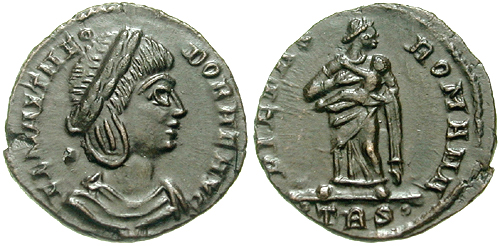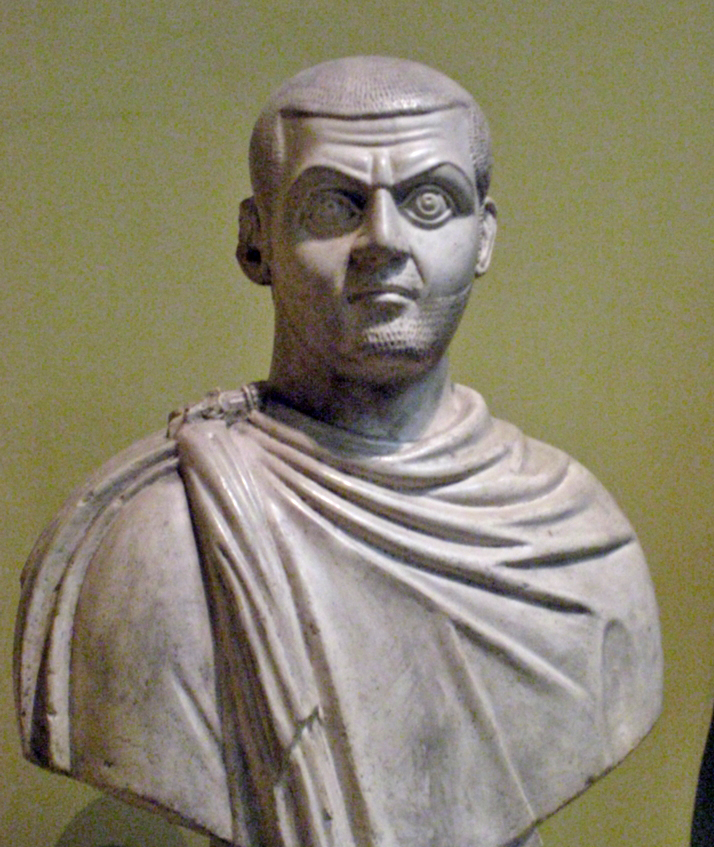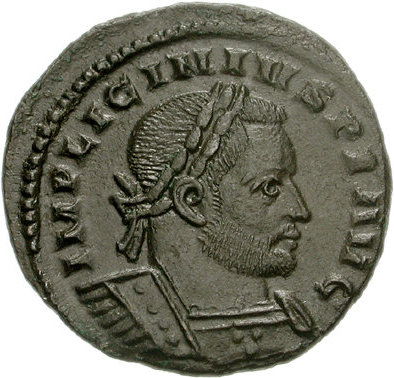|
Kitrusi
Chytri (or Khytri, ) was one of the ten city-kingdoms of Cyprus in antiquity. It was located in the centre of the island, in the territory of Chytraea, west of Mesaoria. Today the modern town of Kythrea (Kyrka) has preserved the ancient name. Ancient history According to mythology, after the fall of Troy, Greek immigrants led by Chytros, son of Alexander and grandson of the Athenian Acamas, hero of the Attic tribe of the same name, settled in Cyprus. The modern village of Kythrea is situated near the ancient kingdom of Chytroi which was founded by Chytros. A necropolis has been discovered. In the time of the Assyrian king Assurbanipal, Pilagura was King of Kitrusi, one of the ten kingdoms on the island. Numerous inscriptions have been found in the Cypriot dialect, some in ordinary Greek. Chytri was noted for the worship of Apollo, Artemis and Aphrodite Paphia. In Delphic Theorodochoi inscription, one inscription mentions Chytri. Later forms of the name are Cythraia, Cytherei ... [...More Info...] [...Related Items...] OR: [Wikipedia] [Google] [Baidu] |
Cyprus
Cyprus (), officially the Republic of Cyprus, is an island country in the eastern Mediterranean Sea. Situated in West Asia, its cultural identity and geopolitical orientation are overwhelmingly Southeast European. Cyprus is the List of islands in the Mediterranean, third largest and third most populous island in the Mediterranean, after Sicily and Sardinia. It is located southeast of Greece, south of Turkey, west of Syria and Lebanon, northwest of Israel and Palestine, and north of Egypt. Its capital and largest city is Nicosia. Cyprus hosts the British Overseas Territories, British military bases Akrotiri and Dhekelia, whilst the northeast portion of the island is ''de facto'' governed by the self-declared Northern Cyprus, Turkish Republic of Northern Cyprus, which is separated from the Republic of Cyprus by the United Nations Buffer Zone in Cyprus, United Nations Buffer Zone. Cyprus was first settled by hunter-gatherers around 13,000 years ago, with farming communities em ... [...More Info...] [...Related Items...] OR: [Wikipedia] [Google] [Baidu] |
Delphi
Delphi (; ), in legend previously called Pytho (Πυθώ), was an ancient sacred precinct and the seat of Pythia, the major oracle who was consulted about important decisions throughout the ancient Classical antiquity, classical world. The Ancient Greece, ancient Greeks considered the centre of the world to be in Delphi, marked by the stone monument known as the Omphalos of Delphi (navel). According to the Suda, Delphi took its name from the Delphyne, the she-serpent (''Drakaina (mythology), drakaina'') who lived there and was killed by the god Apollo (in other accounts the serpent was the male serpent (''drakon'') Python (mythology), Python). The sacred precinct occupies a delineated region on the south-western slope of Mount Parnassus. It is now an extensive archaeological site, and since 1938 a part of Mount Parnassus, Parnassos National Park. The precinct is recognized by UNESCO as a World Heritage Site in having had a great influence in the ancient world, as evidenced ... [...More Info...] [...Related Items...] OR: [Wikipedia] [Google] [Baidu] |
List Of Ancient Greek Cities
This is an incomplete list of ancient Greek cities, including colonies outside Greece, and including settlements that were not sovereign '' poleis''. Many colonies outside Greece were soon assimilated to some other language but a city is included here if at any time its population or the dominant stratum within it spoke Greek. Also included are some cities that were not Greek-speaking or Hellenic, but contributed to the Hellenic culture of the region. A B C D E G H I J K L M N O P R S T V Z See also * Greek colonisation Greek colonisation refers to the expansion of Archaic Greeks, particularly during the 8th–6th centuries BC, across the Mediterranean Sea and the Black Sea. The Archaic expansion differed from the Iron Age migrations of the Greek Dark Ag ... * Adjectival and demonymic forms of regions in Greco-Roman antiquity * List of cities in ancient Epirus * Greek cities in Thrace and ... [...More Info...] [...Related Items...] OR: [Wikipedia] [Google] [Baidu] |
Papal Legate
300px, A woodcut showing Henry II of England greeting the Pope's legate. A papal legate or apostolic legate (from the ancient Roman title '' legatus'') is a personal representative of the Pope to foreign nations, to some other part of the Catholic Church, or to representatives of a state or monarchy. A legate is empowered in matters of Catholic faith and for the settlement of ecclesiastical matters. The legate is appointed directly by the Pope—the Bishop of Rome and head of the Catholic Church. Hence a legate is usually sent to a government, to a sovereign, to a large body of believers (such as a national church), or to take charge of a major religious effort, such as an ecumenical council, a crusade to the Holy Land, or even against a heresy such as the Cathars. The term ''legation'' is applied both to a legate's mandate and to the territory concerned (such as a state, or an ecclesiastical province). The relevant adjective is ''legatine''. History 200px, Cardinal Th ... [...More Info...] [...Related Items...] OR: [Wikipedia] [Google] [Baidu] |
Cardinal Pelagius
Pelagio Galvani (c. 1165 – 30 January 1230, Portuguese: Latin: Pelagius) was a Leonese cardinal, and canon lawyer. He became a papal legate and leader of the Fifth Crusade. Born at Guimarães, his early life is little known. It is repeatedly claimed that he entered the Order of Saint Benedict but this is not proven. Pope Innocent III created him cardinal-deacon of Santa Lucia in Septisolio around 1206. Later, he was promoted to the rank of cardinal-priest of S. Cecilia (probably on 2 April 1211), and finally opted for the suburbicarian see of Albano in the spring of 1213. He subscribed the papal bulls between 4 May 1207 and 26 January 1230. He was sent on a diplomatic mission to Constantinople in 1213. During this two-year mission he attempted to close Orthodox churches and imprison the clergy, but this caused such domestic upset that Henry of Flanders, the Latin Emperor of Constantinople, reversed his actions which had caused the "tempest which held the city of Constanti ... [...More Info...] [...Related Items...] OR: [Wikipedia] [Google] [Baidu] |
Constantius Chlorus
Flavius Valerius Constantius ( – 25 July 306), also called Constantius I, was a Roman emperor from 305 to 306. He was one of the four original members of the Tetrarchy established by Diocletian, first serving as Caesar (title), ''caesar'' from 293 to 305 and then ruling as Augustus (title), ''augustus'' until his death. Constantius was also father of Constantine the Great, the first Christian emperor of Rome. The nickname "Chlorus" () was first popularized by Byzantine Empire, Byzantine-era historians and not used during the emperor's lifetime. As an Illyrian emperors, Illyrian soldier of humble origin, Constantius had a distinguished military career and rose to the top ranks of the army. Around 289, he set aside Helena (mother of Constantine), Helena, Constantine's mother, to marry a daughter of Emperor Maximian, and in 293 was added to the imperial college by Maximian's colleague Diocletian. Assigned to rule Roman Gaul, Gaul, Constantius defeated the usurper Carausius th ... [...More Info...] [...Related Items...] OR: [Wikipedia] [Google] [Baidu] |
Maximinus II
Galerius Valerius Maximinus, born as Daza (; 20 November 270 – July 313), was Roman emperor from 310 to 313. He became embroiled in the civil wars of the Tetrarchy between rival claimants for control of the empire, in which he was defeated by Licinius. A committed pagan, he engaged in one of the last persecutions of Christians, before issuing an edict of tolerance granting Christians their freedoms back near his death. Maximinus Daza is the last to be referred as Pharaoh of Egypt. Name The emperor Maximinus was originally called "Daza", an ancient name with various unknown high distinction meanings in Illyria, where he was born. The form "Daia" given by the Christian writer Lactantius, an important source on the emperor's life, is considered a misspelling. He acquired the name "Maximinus" at the request of his maternal uncle, Galerius (a Roman emperor of Dacian origin). Modern scholarship often refers to him as "Maximinus Daza", though this particular form is not attest ... [...More Info...] [...Related Items...] OR: [Wikipedia] [Google] [Baidu] |
Licinius
Valerius Licinianus Licinius (; Ancient Greek, Greek: Λικίνιος; c. 265 – 325) was Roman emperor from 308 to 324. For most of his reign, he was the colleague and rival of Constantine I, with whom he co-authored the Edict of Milan that granted official toleration to Christians in the Roman Empire. He was finally defeated at the Battle of Chrysopolis (AD 324), and was later executed on the orders of Constantine. Early reign Born to a Dacians, Dacian peasant family in Moesia Superior, Licinius accompanied his close childhood friend and future emperor Galerius, on the Persian expedition in 298. He was trusted enough by Galerius that in 307 he was sent as an envoy to Roman Italy, Italy, to attempt to reach some sort of agreement with the usurper Maxentius. When Galerius went to deal with Maxentius personally after the death of Severus II, he left the eastern provinces in Licinius' care. Upon his return to the east Galerius elevated Licinius to the rank of ''Augustus (tit ... [...More Info...] [...Related Items...] OR: [Wikipedia] [Google] [Baidu] |
Lequien
Michel Le Quien (8 October 1661, Boulogne-sur-Mer – 12 March 1733, Paris) was a French historian and theologian. Biography Le Quien studied at , Paris, and at twenty entered the Dominican convent in Faubourg Saint-Germain, where he made his profession in 1682. Excepting occasional short absences, Le Quien never left Paris. At the time of his death he was librarian of the convent in Rue Saint-Honoré, a position which he had filled almost all his life, lending assistance to those who sought information on theology and ecclesiastical antiquity. Under the supervision of he mastered the classical languages, Arabic and Hebrew, to the detriment, it seems, of his mother tongue. Works His chief works, in chronological order, are: * (Paris, 1690), reprinted in Migne's , III (Paris 1861), 1525–84. It is an answer to by the Cistercian Paul Pezron (1638–1706), who took the text of the ''Septuagint'' as sole basis for his chronology. Pezron replied, and was again answere ... [...More Info...] [...Related Items...] OR: [Wikipedia] [Google] [Baidu] |
Theatre Of Ancient Greece
A Theatre, theatrical culture flourished in ancient Greece from 700 BC. At its centre was the Polis, city-state of Classical Athens, Athens, which became a significant cultural, political, and religious place during this period, and the theatre was institutionalised there as part of a festival called the Dionysia, which honoured the god Dionysus. Greek tragedy, Tragedy (late 500 BC), Ancient Greek comedy, comedy (490 BC), and the satyr play were the three dramatic genres emerged there. Athens exported the festival to its numerous colonies. Modern Western theatre comes, in large measure, from the theatre of ancient Greece, from which it borrows technical terminology, classification into genres, and many of its theme (arts), themes, stock characters, and plot elements. Etymology The word , from which the word "tragedy" is derived, is a compound (linguistics), compound of two Greek language, Greek words: or "goat" and meaning "song", from . This etymology indicates a link with th ... [...More Info...] [...Related Items...] OR: [Wikipedia] [Google] [Baidu] |
Diogenes Laërtius
Diogenes Laërtius ( ; , ; ) was a biographer of the Greek philosophers. Little is definitively known about his life, but his surviving book ''Lives and Opinions of Eminent Philosophers'' is a principal source for the history of ancient Greek philosophy. His reputation is controversial among scholars because he often repeats information from his sources without critically evaluating it. In many cases, he focuses on insignificant details of his subjects' lives while ignoring important details of their philosophical teachings and he sometimes fails to distinguish between earlier and later teachings of specific philosophical schools. However, unlike many other ancient secondary sources, Diogenes Laërtius tends to report philosophical teachings without trying to reinterpret or expand on them, and so his accounts are often closer to the primary sources. Due to the loss of so many of the primary sources on which Diogenes relied, his work has become the foremost surviving source on the ... [...More Info...] [...Related Items...] OR: [Wikipedia] [Google] [Baidu] |




